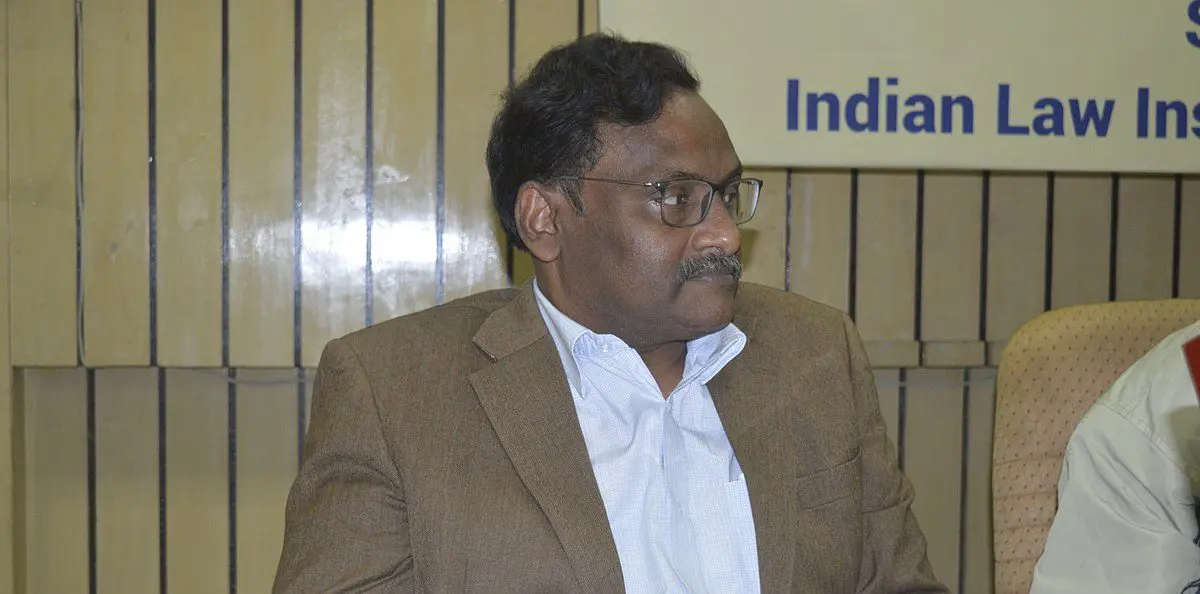The Bench said the accused were being acquitted because the prosecution did not prove the case beyond reasonable doubt.

Prof. GN Saibaba. (Wikimedia)
The Nagpur Bench of the Bombay High Court, on Tuesday, 5 March, acquitted former DU Professor GN Saibaba and five others in an alleged Maoist link case.
The life sentence awarded to them is set aside.
Saibaba, wheelchair-bound with major disabilities, is currently in the Nagpur Central Jail. The Delhi University college, where he was teaching, suspended him immediately after his arrest and terminated his services in 2021.
The other accused are Pandu Pora Narote, who died in August 2022, Mahesh Tirki, Hem Keshwdatta Mishra, Prashant Rahi, and Vijay Nan Tirki.
A Division Bench of Justice Vinay Joshi and Justice Valmiki SA Menezes pronounced the judgment, setting aside the verdict of a Nagpur sessions court, which in 2017 had convicted Saibaba and others for their alleged Maoist links and for indulging in activities amounting to waging war against the country.
The Bench said the accused were being acquitted because the prosecution did not prove the case beyond reasonable doubt. The sanction the prosecution secured to charge the accused under the UAPA was deemed “null and void”.
The Bench had reserved its verdict in September last year, following directions from the Supreme Court.
Tuesday’s verdict followed a re-hearing of Saibaba’s appeal after an earlier high court bench had acquitted the disabled professor on 14 October, 2022.
Reacting to the verdict, lawyer and activist Indira Jaising posted on X, “Saibaba Acquitted, but after how long? Who will give back his health to him? The courts? Shame. How many others have to wait for bail? Who pays the price of loss of liberty without the authority of law?”
Saibaba and the co-accused were arrested in 2014 on charges of having links with Maoist organizations and waging war against India.
During the trial at the Sessions Court in Gadchiroli in Maharashtra, the prosecution contended that the accused were working for the banned CPI (Maoist) group through front organizations such as RDF, according to a Live Law report.
The prosecution relied on evidence, including seized pamphlets and electronic material deemed as anti-national, allegedly seized at the behest of GN Saibaba in Gadchiroli. It was further alleged that Saibaba handed over a 16GB memory card intended for Naxalites sheltering in the Abuzmad forest area, the report said.
In October 2022, the earlier bench of the Bombay High Court held the trial void due to the absence of a valid sanction under Section 45(1) of the UAPA. The court had underscored the importance of procedural compliance in cases involving terrorism and emphasized that departures from due process could foster an environment conducive to terrorism.
Within days, a Bench of the Supreme Court had set aside the Bombay High Court order, saying the offences involved are very serious in nature and the accused were convicted after detailed appreciation of evidence.
The SC Bench’s order noted: “High Court has not considered the merits. High Court has discharged the accused only on the grounds that sanction was invalid and some material placed before the appropriate authority and sanction was granted on the same day.”
The bench stressed that the high court should proceed without prejudice and solely on the case’s merits, without being influenced by its earlier order.
The Supreme Court clarified that it had not determined the case’s merits and emphasized the need for a thorough review by the high court.

Mar 11, 2024

Mar 09, 2024

Mar 09, 2024

Mar 08, 2024

Mar 07, 2024

Mar 07, 2024